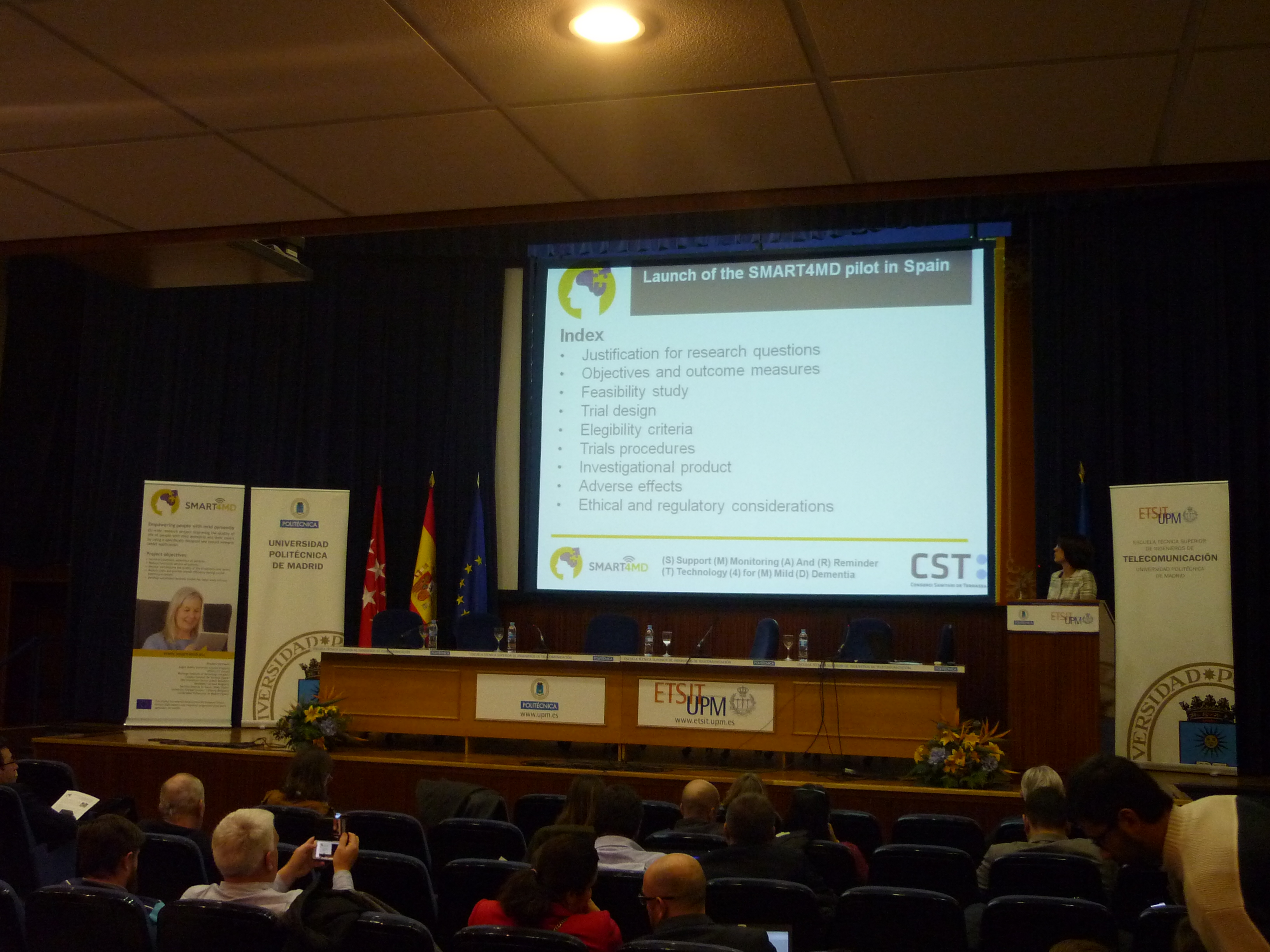
- Search term must have more than 2 characters.

The conference was realized in a framework of the Research and Innovation programme Horizon 2020 under the project SMART4MD (Support Monitoring and Reminder Technology for Mild Dementia). This 4-years-long research project supports people with mild dementia and their carers by developing a tablet-based application. It is developed to increase treatment adherence, reduce functional decline of people with mild dementia and reduce costs in the healthcare system. Spain is one of the countries where is done the main study of the project which involves 1200 volunteers in different European countries and will run until 2019.
Universidad Politéctica de Madrid hosted participants mostly from Spain and also abroad: neurologist, psychologists, care professionals, technologists, patients and carers associations as well as the public. Opening speeches were made by health experts on non-pharmacological therapies. Dr. Sagrario Manzano from Hospital Infanta Cristina, Parla in Madrid on new therapies, Dr Guillermo García from Hospital Ramón y Cajal in Madrid spoked about biomarkers LCR as well as Dr. Javier Olazarán and María Wolf who presented non-pharmacological therapies.
In the next, the conference guests gained a better understanding of the SMART4MD application. Representatives of the project consortium explained how the application works. It combines different functions: it reminds to take medicine or to attend the doctor, enables browse family photos as well as favourite news portals and information about dementia. Users can practise games and other activities, can find information about their current health and share them with healthcare professionals or family carers. The application is specially designed to meet elderly people and is adaptable to their personal needs. It is a complex device with a lot of functions. Conference guests were interested in metrics regarding the impact of the app and which methods will be used to measure improvement in the quality of life.
During afternoon sections of the event, there were presented projects that use TV, cameras and another ICT tools for support of elderly people. The whole conference was closed by a panel discussion where Manuel Nevado, Psychologist from Spanish Society of Geriatrics and Gerontology and Professor of Nebrija University, Giuseppe Fico, Technician and Project Manager from UPM and representative of caregivers from AFA Parla gave their opinions and feedback on using technologies in the treatment of elderly people mainly with dementia.
The presenters in the conference agreed that the latest trends and clinical trials show it is essential to combine various methods of treatment to slow down the cognitive disease. Different streams of nontraditional treatment, for example, a healthy lifestyle, therapy, medication and cognitive training, are recognised in these times. ICT technologies are used for this purposes and enable to facilitate the lives of people with mild dementia and can slow down development of the cognitive disease itself.